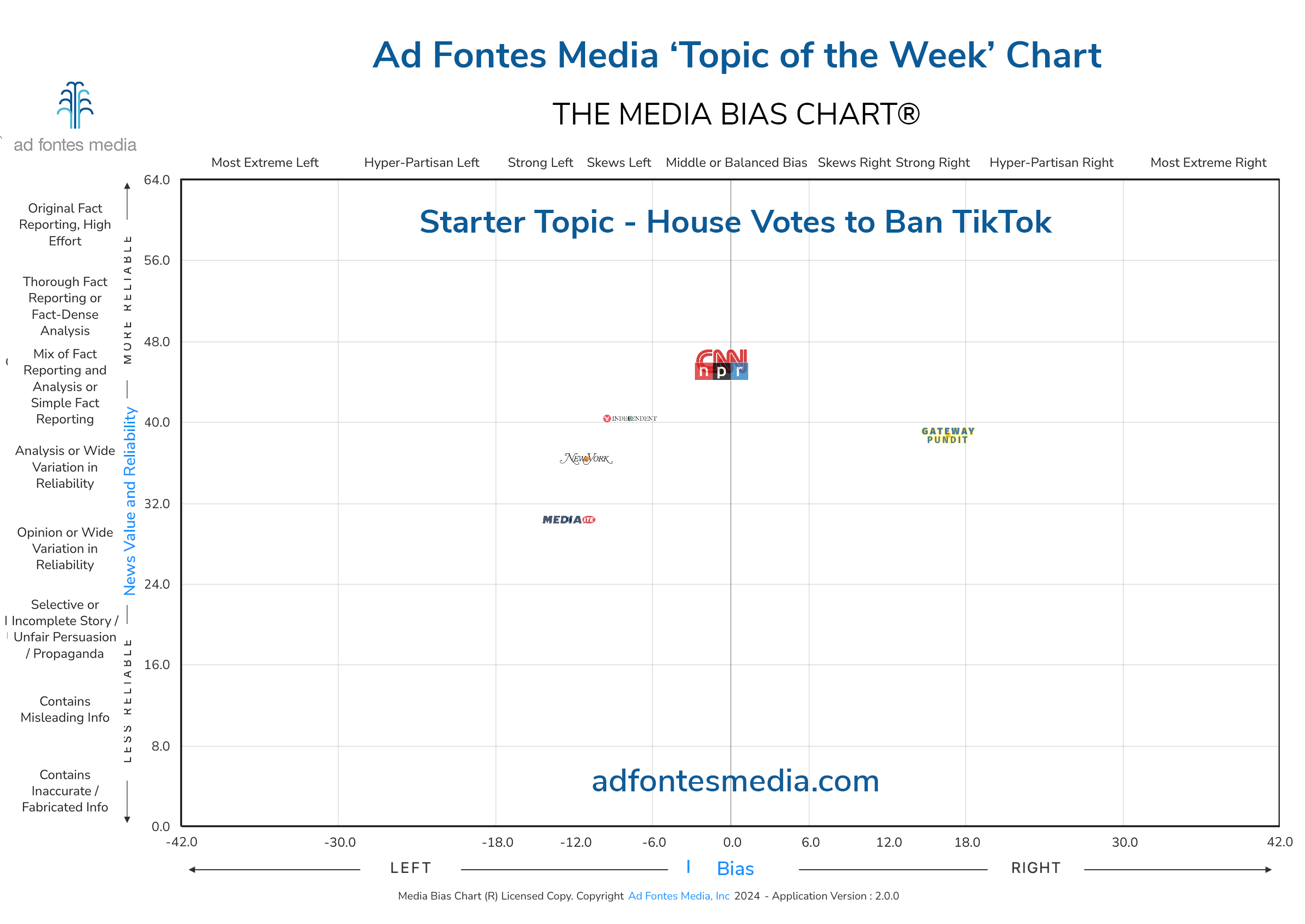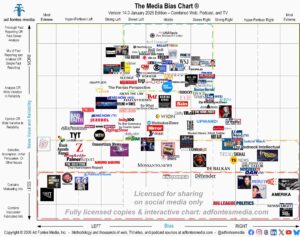
U.S. House Passes Bill That Could Ban TikTok
Author:
Sara Webb
Date:
03/22/2024
The U.S. House of Representatives recently passed a bill that could lead to a ban of TikTok, a popular short-form video sharing platform owned by Chinese company ByteDance. Why? Legislators from both parties as well as top intelligence officials fear that the Chinese government could use TikTok to spy on Americans, push pro-China propaganda, or use the service to interfere in U.S. elections. However, there is a lack of conclusive evidence that this is a credible threat.
The arguments against the bill include civil liberties advocates who say it tramples on the free speech rights of millions of American users; that the same kind of data collected by TikTok can easily be obtained via data aggregators and data brokers; that previous attempts to ban the app have failed in lower U.S. courts, setting up a long legal battle; and that TikTok contributed over $24 billion to the U.S. economy in 2023, mostly by assisting small and midsize businesses, making its demise a hefty financial blow.
Our analysts examined coverage of the House bill and the debate surrounding it in our Topic of the Week. Each week, Ad Fontes Media chooses a widely covered trending news topic to share insight into how our analysts rank news coverage for the Media Bias Chart®. To do this, we select six articles reporting on the same story from different outlets to show how each treated the subject.
Once we choose a set of articles, pods of analysts with diverse political perspectives (one right leaning, one center, and one left leaning) read each article and use Ad Fontes Media’s content analysis methodology to determine its bias and reliability. These ratings inform the articles’ placement on that week’s special Media Bias Chart®.
Our analyst team took a closer look at several articles about the House vote from various media outlets last week: “The House passed a TikTok ban bill. But is the app really a national security threat?” from NPR, “House Passes Bill that Could Ban Chinese-Owned TikTok in America – 65 Members Vote No, Including 15 Republicans” from The Gateway Pundit, “Wait, is America actually banning TikTok now?” from CNN, “Trump Meets TikTok Investor, Suddenly Doesn’t Want to Ban It” from New York Magazine’s Intelligencer, “Trump found one issue Republicans won’t just go along with him on: TikTok” from The Independent, and “Trump Stumbles Through Word Salad On Banning Or Not Banning TikTok In CNBC Hit” from MEDIAite. The bias and reliability scores for each of these articles can be found on our Topic of the Week page.
We will be looking closer at reactions from MEDIAite and New York Magazine’s Intelligencer. The interesting thread that both of these left-leaning articles follow is not one of social justice or First Amendment rights, but of former President Donald Trump’s reversal on his feelings about TikTok. During Trump’s final year in office, he signed an executive order banning TikTok (which was quickly blocked by federal judges in Pennsylvania and Washington, D.C.), but recently he changed his tune, campaigning for a stay in TikTok’s execution. His party did not rise to his challenge, which was unusual, since he has previously been able to sway GOP lawmakers in the direction he chooses (see the Ad Fontes Media blog from Feb. 16, 2024). But why the sudden reversal?
New York Magazine was launched in 1968 and was known for publishing works from writers such as Gloria Steinem and Tom Wolfe. Part of Vox Media since November 2019, it has won numerous National Magazine Awards and a Pulitzer Award in 2018 for art criticism. Our analysts have given it an aggregate score for reliability of 39.79 (analysis or wide variation in reliability) and for bias of -9.86 (skews left). This week’s article from the magazine’s Intelligencer section — which provides analysis about politics, business and finance, technology, sports, and media — was rated at 36.33 for reliability and -11 for bias, keeping it within those same categories.
The Intelligencer posited that Trump’s about-face on a potential TikTok ban happened just after a meeting with “Jeff Yass, a conservative hedge-fund manager who has a $33 billion stake in TikTok and has reportedly threatened to cut off funding to Republicans who support the divestment bill… Last week, Yass visited Mar-a-Lago, where Trump praised him as ‘fantastic,’ and media reports touted that Yass could potentially contribute generously to Trump’s campaign.” The article compares this to another instance in which Trump’s personal gain trumped everything else: “In 2020, he repeatedly praised Beijing’s leadership in fighting COVID while hoping to land a trade deal that would help his reelection campaign.”
The article is quite critical of Trump, calling the fact that he maintains a bank account in China “one of innumerable damning facts about the former president that the public has forgotten because they’ve been crowded out by other damning facts,” an allusion to Trump’s current court cases. It doesn’t stop at Trump, however, and adds, “… if you think Joe Biden is controlled by the woke left, as most conservatives apparently do, then you see TikTok as an agent of his interests.” In the end, though, it goes back to whence it started: “In the short run, it may well help Trump. And his own short-run personal interest is obviously the only thing Trump has ever cared about.”
MEDIAite is a news and opinion website that focuses on politics and the media. It is also known for publishing a yearly list of the Most Influential in News Media personalities each December. The site was launched in 2009 and is part of the Abrams Media Network, based in New York City. Its aggregate score for reliability is 38.5 (analysis or wide variation in reliability) and for bias is -9.2 (skews left). This week’s article was rated at 30.33 (opinion or wide variation in reliability) for reliability and -12.33 for bias (strong left).
MEDIAite spent quite a bit less time with context and analysis than New York Magazine. In the CNBC interview quoted in the article, host Andrew Sorkin asked Trump, “At one point you said that their, quote, ‘Data collection threatens to allow the Chinese Communist Party access to Americans personal and proprietary information.’ And yet, it appears that you’ve now reversed your view on banning TikTok. Why is that?”
Trump’s response is described in the article as a “journey,” with him saying that Facebook is bad, he did meet with hedge fund manager Jeff Yass and his wife but mostly talked to his wife about education, and that protecting American privacy and data rights is a problem with companies like Facebook as well as TikTok. To counterpoint that interview, the article includes a similar question put to President Biden, asking if he would sign a bill banning TikTok. His response was short and to the point: “If they pass it, I’ll sign it.”
These are just a few examples of the thousands of articles our analysts have rated for reliability and bias. If you want a look at the larger media landscape or are curious to see how our analysts have rated your favorite sources, head on over to our website and check out the resources we have available. And don’t forget to come back for another examination of our Topic of the Week.
If you want to stay informed on all of our amazing work, join our free mailing list!


